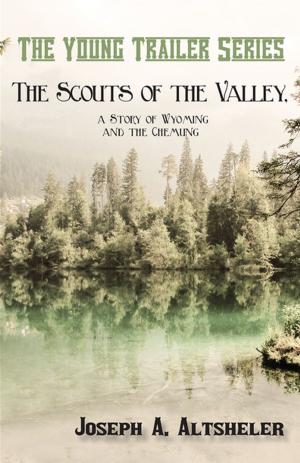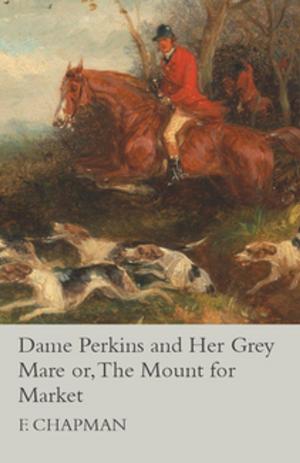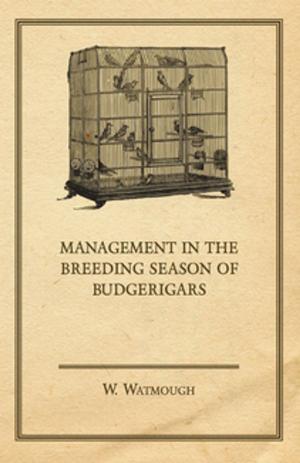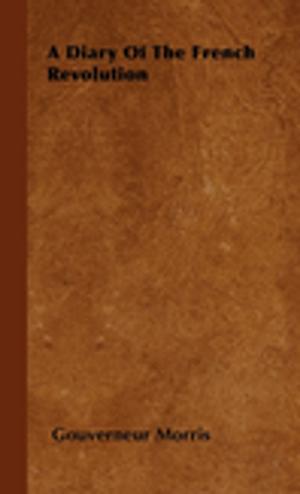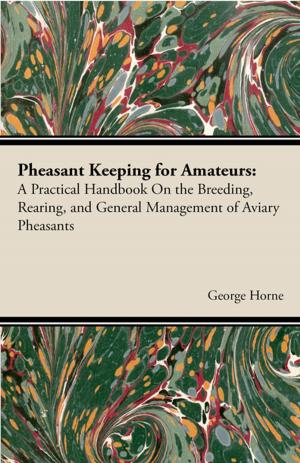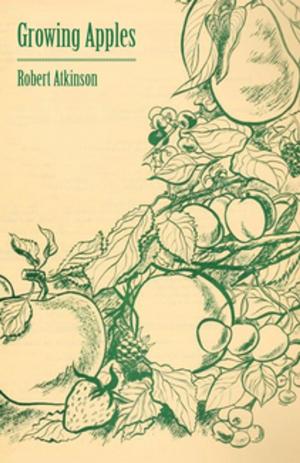A Book Of Welsh Names
Nonfiction, Family & Relationships, Babies & Toddlers, Baby Names, Reference & Language, Language Arts, Linguistics, History| Author: | Trefor Rendall Davies | ISBN: | 9781473351578 |
| Publisher: | Read Books Ltd. | Publication: | September 6, 2016 |
| Imprint: | Stubbe Press | Language: | English |
| Author: | Trefor Rendall Davies |
| ISBN: | 9781473351578 |
| Publisher: | Read Books Ltd. |
| Publication: | September 6, 2016 |
| Imprint: | Stubbe Press |
| Language: | English |
William Camden flourished at the beginning of the seventeenth century, was the first and one of the greatest of many authorities on the derivation and meaning of English names as far as Welsh names were concerned, he explained that it was his policy to sparingly touch them or to leave them to the learned of that nation. Subsequent English expositors have followed his example, and the learned men of Wales do not seem to have found much time to devote to the subject. To- wards the end of the nineteenth century T. E. Morris and Sir John Edward Lloyd wrote a number of articles in various periodicals, and much incidental information is found in the works of Sir John RhFs, but very little has been published which is easily available, either to the student or to the more casual enquirer. It is hoped that, in due course, a more substantial work will help to fill this gap in philological reference books, but meantime this little volume is offered to those who are curious about the derivation and meaning of the beautiful and often ancient names of Wales. It may, perhaps, be conned by young parents seeking a name for their child. If so, those without Welsh connections are advised to reject the idea of finding one here, and those with sufficient ties to justify choosing one are admonished to use the utmost care Gwenhwyfar Smith or Cadwaladr Robinson looks just as incongruous as Cholmondeley Kai-shek - for just the same reason. The names which have been included are, for the most part, fairly well-known or popular ones the derivation or meaning of some is uncertain, and in these cases the one given is that which, considering all the evidence, seems most probable. After many of the entries are examples of early, famous, or merely typical uses of the name. Nearly all Welsh names can be sorted easily into one of seven groups. Those in the first four are Welsh in origin but the remainder, although they have acquired a distinctive Welsh form, derive from foreign sources. SYMBOLICAL NAMES These are usually the most ancient. They are not directly descriptive, but, as among most primitive people, they are often the names of animals, birds or natural phenomena. Sometimes their origin was totemistic the tribe or family believed itself to be under the special protection of a god whose manifestation was in the form of some particular creature. The creature itself was regarded as sacred and the chief, or head of the family, frequently took its name, or some combination containing it, for himself. At other times the giving of such a name was based on the more simple idea that so doing would induce in the infant some significant attribute of the beast from which his name was taken. As might be expected, the names of the old gods and legendary heroes are frequently of this type, such as Bran Raven , Bleddyn Little Wolf and Gwawr Dawn . When they are chosen to-day, of course, it is generally with little regard to their meaning, or symbolism, but simply because they are the traditional names of the people. Enfys Rainbow is a modern example in this group. Many of these too are very old...
William Camden flourished at the beginning of the seventeenth century, was the first and one of the greatest of many authorities on the derivation and meaning of English names as far as Welsh names were concerned, he explained that it was his policy to sparingly touch them or to leave them to the learned of that nation. Subsequent English expositors have followed his example, and the learned men of Wales do not seem to have found much time to devote to the subject. To- wards the end of the nineteenth century T. E. Morris and Sir John Edward Lloyd wrote a number of articles in various periodicals, and much incidental information is found in the works of Sir John RhFs, but very little has been published which is easily available, either to the student or to the more casual enquirer. It is hoped that, in due course, a more substantial work will help to fill this gap in philological reference books, but meantime this little volume is offered to those who are curious about the derivation and meaning of the beautiful and often ancient names of Wales. It may, perhaps, be conned by young parents seeking a name for their child. If so, those without Welsh connections are advised to reject the idea of finding one here, and those with sufficient ties to justify choosing one are admonished to use the utmost care Gwenhwyfar Smith or Cadwaladr Robinson looks just as incongruous as Cholmondeley Kai-shek - for just the same reason. The names which have been included are, for the most part, fairly well-known or popular ones the derivation or meaning of some is uncertain, and in these cases the one given is that which, considering all the evidence, seems most probable. After many of the entries are examples of early, famous, or merely typical uses of the name. Nearly all Welsh names can be sorted easily into one of seven groups. Those in the first four are Welsh in origin but the remainder, although they have acquired a distinctive Welsh form, derive from foreign sources. SYMBOLICAL NAMES These are usually the most ancient. They are not directly descriptive, but, as among most primitive people, they are often the names of animals, birds or natural phenomena. Sometimes their origin was totemistic the tribe or family believed itself to be under the special protection of a god whose manifestation was in the form of some particular creature. The creature itself was regarded as sacred and the chief, or head of the family, frequently took its name, or some combination containing it, for himself. At other times the giving of such a name was based on the more simple idea that so doing would induce in the infant some significant attribute of the beast from which his name was taken. As might be expected, the names of the old gods and legendary heroes are frequently of this type, such as Bran Raven , Bleddyn Little Wolf and Gwawr Dawn . When they are chosen to-day, of course, it is generally with little regard to their meaning, or symbolism, but simply because they are the traditional names of the people. Enfys Rainbow is a modern example in this group. Many of these too are very old...

